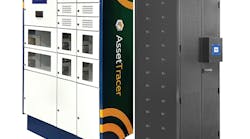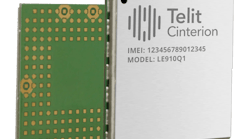The University of Alaska Anchorage is developing a system for the U.S. military that uses radio-frequency identification, or RFID, technology to track cargo.
The technology -- which uses tiny electronic sensors to uniquely identify each item being shipped -- has been around for decades but only recently has become advanced or affordable enough for large-scale use.
The Defense Logistics Agency, which supplies America's military forces worldwide, has contracted with UAA to develop a prototype system using RFID to track military shipments into Alaska, said Elisha "Bear" Baker, a UAA logistics professor who is in charge of the project.
The university has requested $42 million to pay for the three-year project. So far, the Defense Department has committed $7.7 million. Officials will review the project's progress annually to determine future allotments, Baker said.
Commercial shipping companies and large retailers already have put RFID tracking systems in place.
RFID tags are a sort of electronic replacement for bar codes. They use radio waves to beam information to a reader that could be as far away as 20 feet.
Such systems can significantly streamline inventory tracking by enabling handlers to scan whole pallets of material at once instead of having to scan each item's bar code one at a time.
Working in partnership with three companies, UAA's logistics department will design and test a prototype system that uses RFID to track military shipments to Alaska from the Defense Distribution Center San Joaquin in central California, Baker said.
The San Joaquin depot ships a variety of items, including food, clothing, electrical supplies and construction materials.
The system will track items shipped from the depot by sea, air and road to Alaska's military installations, Baker said.
Chenega Technical Services, a subsidiary of Chenega Corp., a village Native corporation that primarily contracts with federal agencies, will be in charge of the computer software that runs the system, Baker said.
Horizon Lines, one of two major shipping companies that moves goods by sea to Alaska from the Lower 48, is also a partner. Initially, the tracking system will work with cargo in Horizon's trade lanes, Baker said.
Alien Technology Corp. of Morgan Hill, Calif., is supplying the RFID tags, Baker said.

